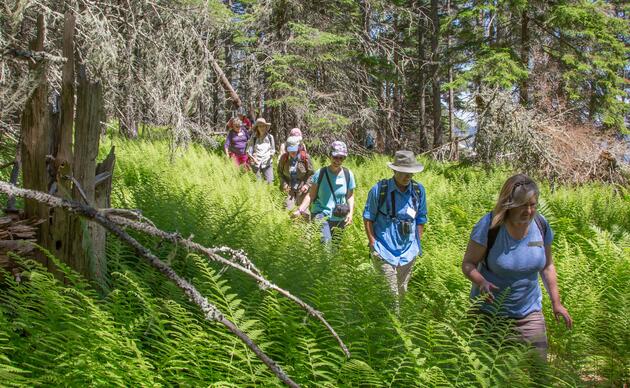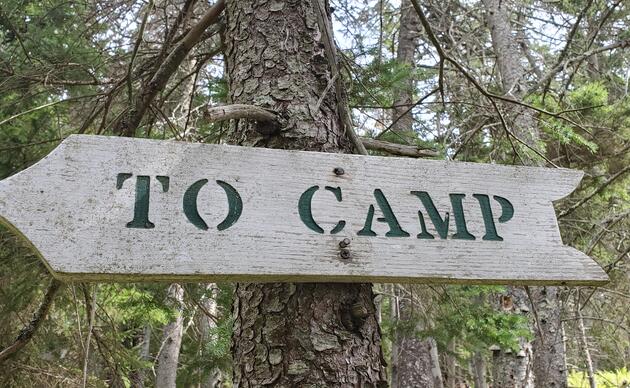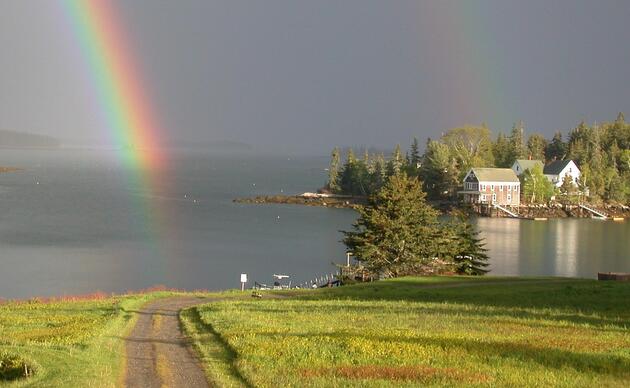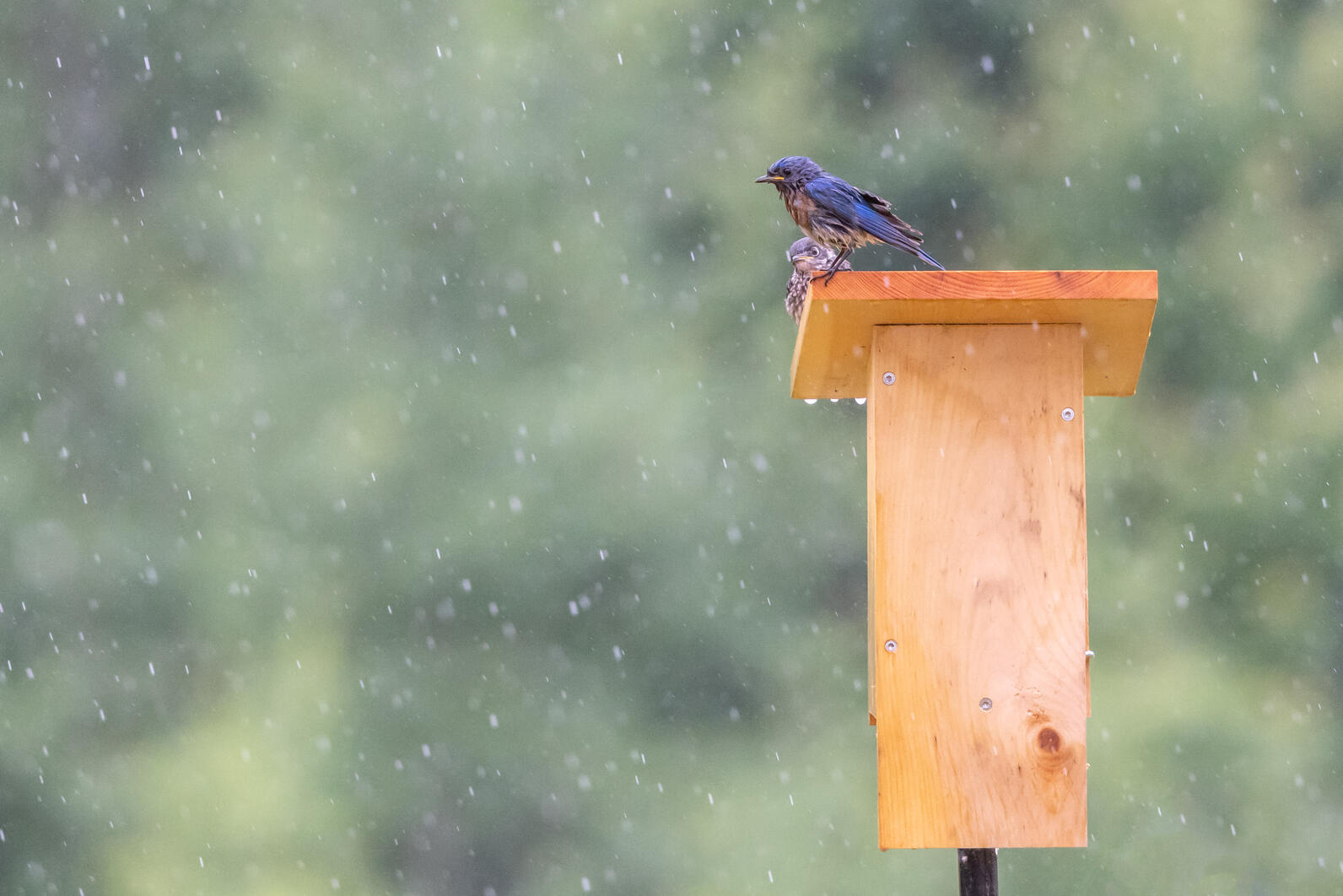
*SOLD OUT* - Join the Waitlist
Calling all bird nerds! Come immerse yourself in a week of all things avian: bird biology, evolution, nesting behavior, songs, migration, conservation, and identification. You will learn in the field from some of the most respected bird experts in the country. Throughout the week you will visit both mainland and coastal habitats including offshore islands, spruce woods, lush grasslands, marshes, and sphagnum bogs in search of coastal Maine’s diverse community of nesting birds.
You'll learn in the woods and on the water—experiencing the dawn chorus with experts in bird song recording at your side; helping a bird bander ring colorful warblers; discussing avian coloniality in the midst of thousands of raucous terns. Workshops and evening sessions will provide a solid foundation on the principles of ornithological science. You'll come home with amazing memories, new friends, and a much greater understanding of bird biology and ecology.
Please note that this session runs concurrently with Coastal Maine Bird Studies for Teens. You will overlap with the teen campers during meals and evening programs, which makes for a wonderful opportunity for sharing the joys of birding across different ages!
Pricing: $1,725
Maine residents are eligible for a $150 in-state discount for this session! After you register, contact hogisland@audubon.org to confirm your residency and the discount will be applied to your account.
The base registration fee includes meals, housing, instruction, and all field trips. This price is based on a standard shared room (with 2 twin beds) a shared bathroom. A limited number of upgraded accommodations are available for an additional cost. Two upgrade options are a single room for solo travelers or a room with a private bath for two people traveling together. There are no single rooms with private bathrooms available. Please see our lodging page for more information.
Participants must arrange their own transportation to and from the Audubon dock in Bremen at the start and end of the session. Please see our transportation page for more information.
There are several scholarship opportunities available to help participants attend Hog Island sessions! Please see our scholarships page for more information about Hog Island Scholarships. You should also check with your local Audubon chapter or bird club for additional opportunities.
Requirements: There are no prerequisites for this program! Birders of all skill levels are welcome as are less experienced/enthusiastic partners, friends, or family.
Director: Scott Weidensaul
Scott Weidensaul is the author of nearly 30 books on natural history, including the Pulitzer Prize finalist "Living on the Wind" and his latest, the New York Times bestseller "A World on the Wing." Weidensaul is a contributing editor for Audubon and writes for a variety of other publications, including Bird Watcher's Digest and Living Bird. He is a Fellow of the American Ornithological Society and an active field researcher, studying saw-whet owl migration for more than 25 years, as well as winter hummingbirds in the East, bird migration in Alaska, and the winter movements of snowy owls through Project SNOWstorm, which he co-founded. He lives in New Hampshire, and is the chair of the Friends of Hog Island board of directors.
Instructors: Catherine Hamilton, Anthony Hill, Corey Husic, Sara Morris
Catherine Hamilton was pretty much born with a pencil in hand, and began birding at an early age with her father. She holds a BFA from the Rhode Island School of Design and an MFA from Bennington College, and has melded a keen interest in both natural history and art into a vocation of looking and learning deeply. A former instructor at the Rhode Island School of Design, she loves sharing her passion for both the avian and art worlds. Her work can be found in publications like the Princeton University Press book “The Warbler Guide,” and in journals and magazines such as “Nature,” “The Journal of Raptor Research,” and “Orion Magazine.” She was featured in the 2012 HBO documentary Birders: the Central Park Effect. Catherine believes that anyone can gain insight and understanding of the world around them through field sketching and observation.
Anthony Hill came to Hog Island in 1995 as a Field Ornithology camper, where he saw a banding demonstration by Sara Morris and heard a talk about Project Puffin by Steve Kress. As a result of that introduction, he became fascinated with both songbird banding and the Seabird Restoration Project (Project Puffin) and immersed himself in both activities. Anthony volunteered for part of 20 consecutive summers with Project Puffin on Eastern Egg Rock, Stratton Island, Matinicus Rock and Seal Island (his favorite).
In August 1995, Anthony attended a week-long introduction to bird banding at Dr. Morris’ banding station on Appledore Island and has been a regular Spring and Fall volunteer at that station since that first visit. He now holds a Master Bander permit with endorsement for hummingbirds and is certified as a bander Trainer for Passerines and Hummingbirds by the North American Banding Council (NABC). His personal banding research has focuses on wintering hummingbirds in New England and breeding American Kestrels in the Connecticut Valley of Massachusetts where he lives. He is on the board of the Friends of Hog Island and the Kestrel Land Trust, and enjoys being a regular construction volunteer and supervisor with Pioneer Valley Habitat for Humanity.
Anthony retired from a career in medical microbiology in 2010 and has been a Hog Island instructor for 8 years. He served as a Navy Hospital Corpsman with the Marines in Vietnam from 1968-1970.
A native of the Appalachian Mountains of Pennsylvania, Corey Husic is a lifelong birder and naturalist. He first landed on Hog Island as a teen camper in 2012 and quickly fell in love with the place. Since 2017, he has returned to the island as an instructor. Corey has worked extensively to conduct ecological research and develop educational programs related to ecology, conservation, and natural history. Of particular note is his work with avian nocturnal flight calls. He conducted the initial flight call monitoring at the famous Bear Divide migration site in Southern California and has fostered an online community of professional and amateur flight call enthusiasts to develop a nationwide network of recording stations. Corey is also an eBird regional reviewer, an Audubon Christmas Bird Count compiler, and a member of the Pennsylvania and Michigan bird records committees. He is also a Field Naturalist for ZEISS.
In his day job, Corey is a chemist and educator holding a B.A. from Harvard University and a Ph.D. from the California Institute of Technology. He is currently a visiting assistant professor at Lafayette College in Easton, PA.
Sara Morris is currently the Executive Director of the Shoals Marine Lab, an educational field station on Appledore Island, Maine, jointly operated by the University of New Hampshire and Cornell University. Her connection to Appledore and the Shoals Marine Lab dates back to 1990, when she began her studies of bird migration as a graduate student at Cornell University. She received her PhD in 1996 and joined the faculty at Canisius College that year. At Canisius, she taught a variety of courses including ornithology, vertebrate zoology, field ecology, evolution and ecology, and anatomy and physiology of plants and animals. Her career at Canisius included achieving tenure, attaining promotion to full professor, coordination of the Environmental Science Program, service as Co-chair of the Biology Department, selection as Associate Vice President for Academic Affairs, and ultimately selection as Vice President for Academic Affairs. At Canisius, she was honored with induction into several honor societies, receiving the Arts and Sciences Teaching Award, and receiving the Koessler Distinguished Faculty Award, the highest honor for a faculty member. After more than 27 years at Canisius, the last nine of which were in academic administration, she retired from Canisius in 2024, received the honor of emeritus status, and immediately accepted the passion project of leading the Shoals Marine Lab. Shoals is the largest and oldest marine lab focused on undergraduate research. Shoals also provides extensive research opportunities, building of community, and advancement of sustainable practices and infrastructure. Shoals focuses on immersive, place-based education, and she is thrilled to be facilitating the continued transformative educational experiences Shoals provides. Sara’s research program has focused on migration and stopover ecology, and recently has expanded into flight calling behavior. She has also contributed to projects investigating the impacts of birds and bird migration on zoonotic diseases, the impacts of anthropogenic structures on birds (especially in migration), and the impact of climate change on bird migration in North America. Her work led to her election as and Elective Member and later a Fellow of the American Ornithologists’ Union (AOU), election to the Council of the Wilson Ornithological Society (WOS) and AOU, election as Secretary of the WOS and later the AOU, election to the presidential succession of the WOS, and most recently election to the presidential succession of the American Ornithological Society. She currently serves as the President of the American Ornithological Society. She began teaching at the Audubon Camp in 1990 and is thrilled to have the opportunity to return to Hog Island each year to share her love of birds, Hog Island, Muscongus Bay, and Black Guillemots with participants in camp programs. She also currently serves on the Board of the Friends of Hog Island because of her commitment to the mission and activities of the Hog Island Audubon Camp.
Assistant Instructor: TBA
NOTE: Audubon reserves the right to alter itineraries, instructors and particular arrangements, or to substitute similar itineraries or arrangements, at no penalty. If Audubon cancels a session, it will issue full refunds of all deposits or payments to the paid participants.
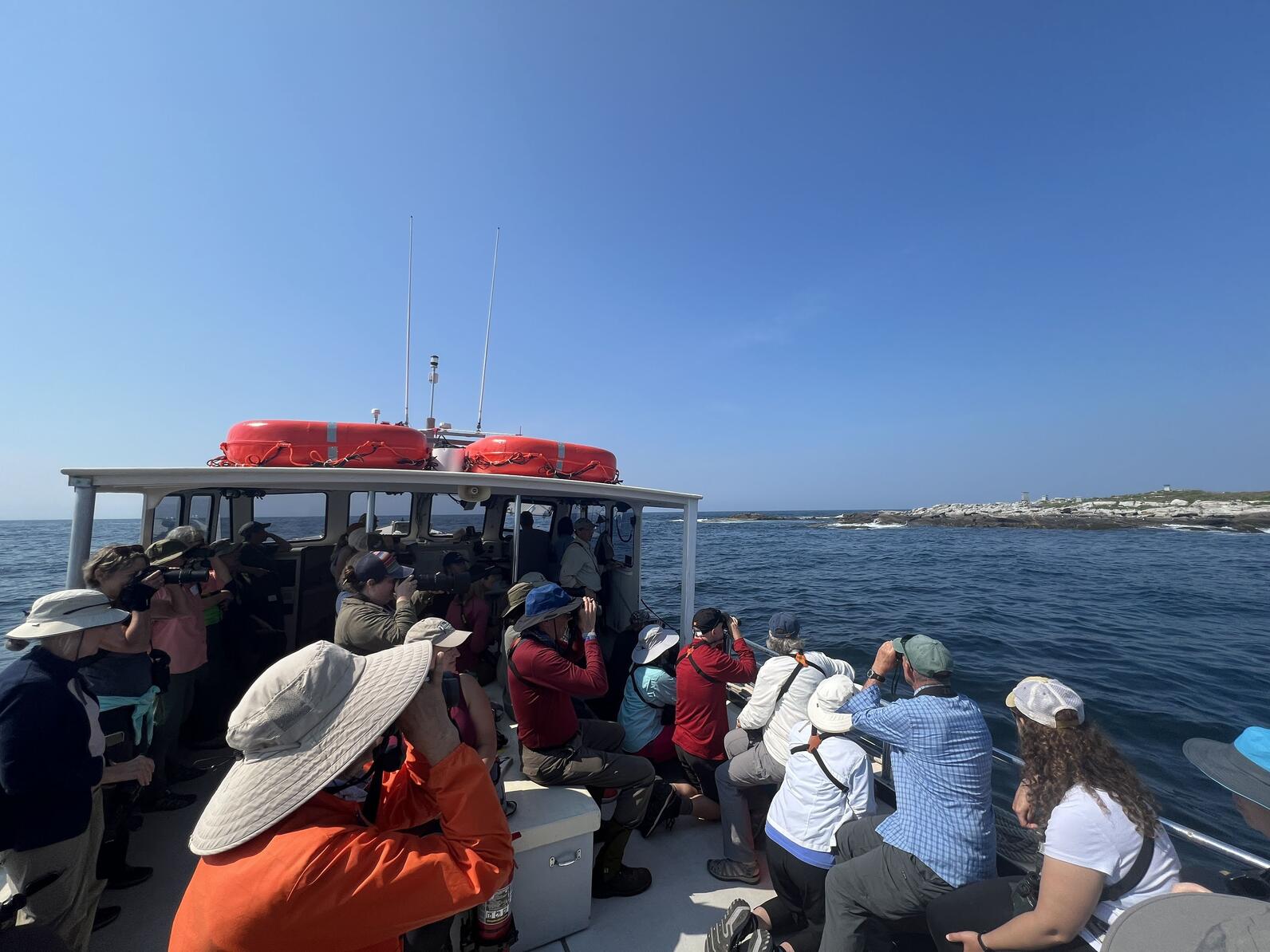
Testimonials:
“I loved this experience. I learned so much and the people were all friendly and nice.” - 2025 Camper
“[The instructors were] seriously amazing. We felt so welcomed and it was easy to learn from all of them.” - 2025 Camper
“Amazing staff. All friendly, understanding, and down to Earth, especially with a novice birder!” - 2025 Camper
“Instructors and staff were friendly and always willing to discuss all topics covered. This program is one I will treasure for a lifetime.” - 2025 Camper
“[Staff was] incredibly approachable and knowledgeable all around. I appreciated the varieties of personalities and expertise anda ll the enthusiasm and love for birds.” - 2025 Campers
“I have never felt so safe, comfortable or accepted like this before. Hog Island and all who I have met here have changed me for the better. Thank you for the magic, it will be spread around the world.” - 2025 Camper
“Everyone had such a genuine passion for what they do and for sharing it with others. This comes through in every program and every interaction. They are patient, kind, so knowledgeable and seem genuinely overjoyed to watch others find their joy and learn something new.” - 2025 Camper
“This is a unique and magical place. The first day I kind of felt like I’d died and gone to heaven. How wonderful to not be the only person in a group that likes birds and nature. I finally found others like me! I so love that there are camps to go to for adults who enjoy learning. This week has been a gift to me!” - 2025 Camper
“This program really reinvigorated my passion for field work and birding. After a few years of illness, i had been feeling disconnected from birding and they made me feel included and supported.” - 2025 Camper
“I learned way more than I ever expected and had such an amazing experience at camp! I would come back again in a heartbeat and hope that I’ll be able to in the future.”- 2025 Camper

